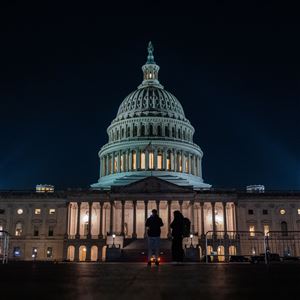HARRISBURG -- It's an issue that has been studied and debated for decades but never gotten off the drawing board: the idea of combining Pennsylvania's Fish and Boat Commission and Game Commission into one agency.
Proponents say it would mean savings, but hunters and anglers vigorously oppose the idea.
Pennsylvania is the only state with separate agencies managing fish and wildlife.
"Pennsylvania is very slow to change. Anybody that works in this building knows change occurs very slowly here," said Rep. Martin Causer, R-Turtlepoint, chairman of the House Game and Fisheries Committee, speaking at a meeting last week to discuss a recent study examining the issue.
Mr. Causer said he supports consideration of a merger and believes one agency could still provide a strong voice for sportsmen.
The report projected a merged agency could save about $4.8 million annually in personnel costs -- $1.75 million at the headquarters level and $3.08 million in reductions at the regional level.
The report, which the state's Legislative Budget and Finance Committee issued earlier this year, reached a similar conclusion the latest time the matter was studied, about 10 years ago.
That figure is based on eliminating several upper-level positions that would be redundant in a merged agency and assumes 52 positions would be eliminated. Several potential kinks would need to be smoothed out in any hypothetical combined agency -- such as collective bargaining contracts, merging IT systems and jurisdictional issues between the two agencies.
The report also noted that both commissions already have a combined expenditure per license that is lower than average, "suggesting that significant savings in a merger may be limited."
"We think we operate efficiently," said Eric Levis, spokesman for the Fish and Boat Commission. "We're a very lean agency."
Certain areas don't offer any potential savings, the report noted. For instance, both commissions own (rather than lease) their buildings, and neither facility would be big enough to accommodate a combined agency, so both buildings likely would remain in use.
"Many of the staff of the two agencies we spoke with expressed concern over the possible 'dilution' of the focus of their agencies' mission and expertise if the two were merged," said Patricia Berger, senior counsel and project manager for the Legislative Budget and Finance Committee, in explaining the study's findings to legislators last week.
Neither agency receives any money from the state's general fund. They raise revenue from hunting, fishing and boating licenses.
Both agency executive directors report to their respective boards of commissioners.
"Most sportsmen are adamantly opposed to any kind of merger," said Josh First, a member of the Pennsylvania Federation of Sportsmen's Clubs, and such opposition is likely what has kept the two agencies separate for so long.
While any merger is unwanted, merging the commissions into the state's Department of Conservation and Natural Resources would be more unpopular than a union to create a stand-alone agency, said Mr. First.
"Sportsmen don't want wildlife management to get politicized," he said.
First Published: June 9, 2014, 2:59 a.m.















